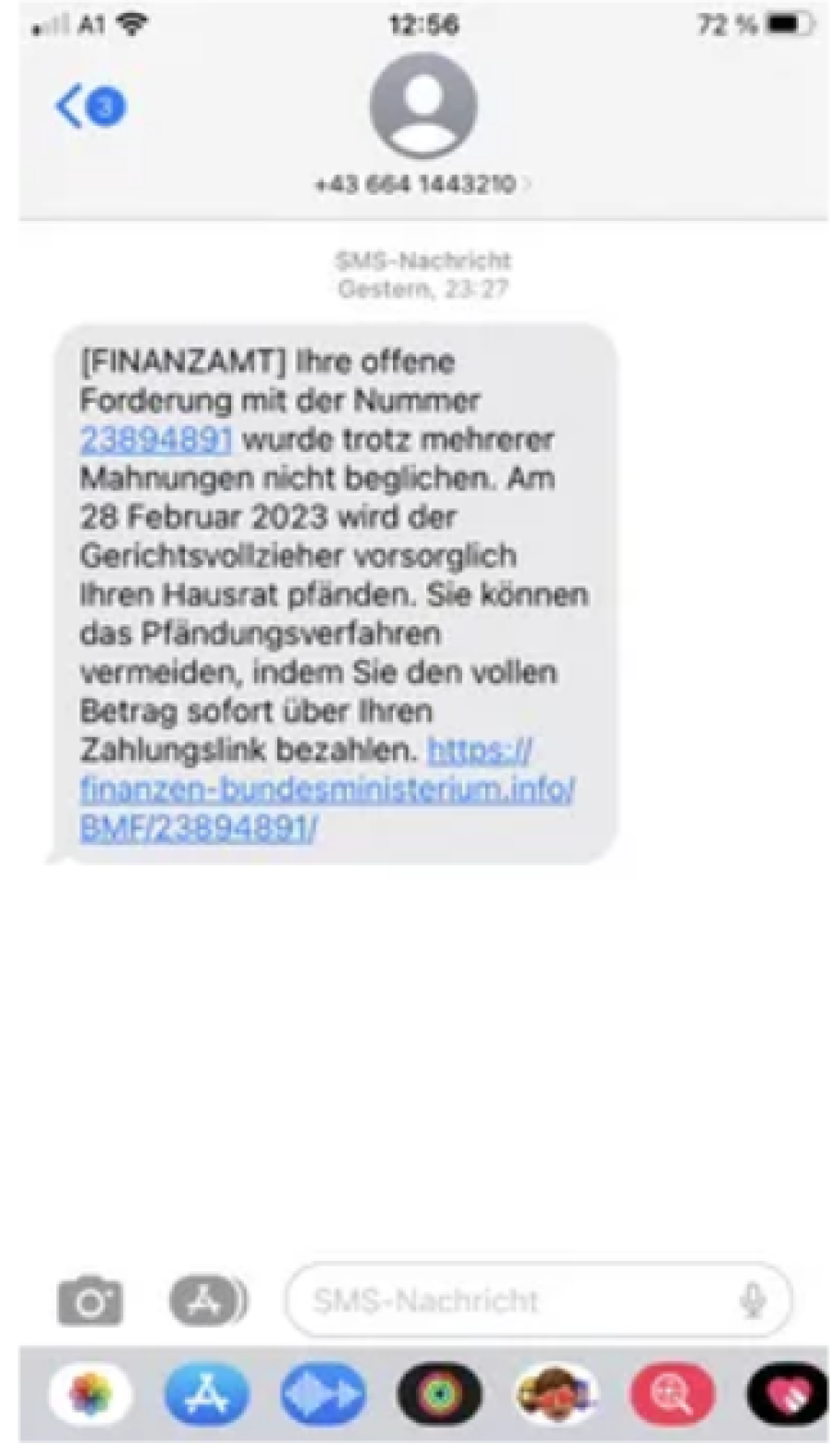Online Scams & Fraud in Austria

The risk of online fraud and scams keeps rising as the globe gets more linked thanks to the internet. Like many other nations, Austria is not exempt from this pattern. In 2021, there were over 45,000 documented cases of cybercrime in Austria, with damages totaling millions, according to a new study by the Austrian Federal Criminal Police Office (Bundeskriminalamt).
Online fraud is the most common cybercrime reported to the Austrian police, increasing from 16,831 instances in 2019 to 18,780 cases in 2020 to 22,440 cases in 2021. Despite the large growth, the proportion of cases that were resolved increased from 33.4% in 2020 to 37.2% in 2021.
Join us as we uncover everything there is to know about scams and frauds in Austria including where to report the scams and get victims' support.
Scam Statistics in Austria
The key statistics on online fraud in Austria, according to the Global Anti Scam Alliance.
| 2018 | 2019 | 2020 | 2021 | |
| Population | 66.44 million | 66.8 million | 67 Million | 67 million |
| Internet Penetration | 96% | 87% | 95% | 97% |
| # of Scams | 976,000 | 430,000 | 875,622 | 965,162 |
| Scams / 1,000 | 15 | 6.4 | 13 | 14.34 |
| Money Lost | €450 million | €1.3 billion | € 2.001 million | € 3.04 billion |
| Money Lost / Capita | €6.80 | € 19.46 | € 29.77 | € 38.55 |
| Money Lost / Report | € 3,023 | € 2,285 | € 2,688.68 |
The figures in the table will differ strongly per year as various sources have been used, pending on availability.
Where Can I Report a Scam in Austria?
- Federal Criminal Police Office (Bundeskriminalamt - BK)- You can report your scam to the Bundeskriminalamt either at the local, state, or federal police.
- Cyber Crime Competence Center (C4)- This is the arm of the federal police where people can report hacking, DDOS attacks, child pornography, and online scams. Reach out to them via against-cybercrime@bmi.gv.at
- OIAT (the Austrian Institute for Applied Telecommunication)- They have been helping consumers since 1997 and you can report online shopping scams and other scams here.
- Internet Ombudsman (Internet Ombudsmann): The Internet Ombudsman in Austria provides assistance and dispute resolution for online-related issues, including scams. You can report scams through their website or contact them for guidance.
- European Consumer Centre (ECC) Austria: If the online scam involves cross-border transactions within the European Union, you can contact the European Consumer Centre (ECC) Austria. They provide assistance to consumers facing issues related to cross-border online purchases.
How to Report a Scam in Austria
Reporting a scam is crucial. At the moment, only 7% of all scams are reported. As a result, only 0.05% of all cybercriminals are caught. Reporting online fraud is not only essential if you want to try and get your money back. It is also needed to help law enforcement fight scammers better.
- Gather info: Collect all information about the suspected fraud including the name, telephone, key web pages, emails, IP address, and any other information relevant. This is needed to file a complete report.
- Report the incident: Always report to your local law enforcement and note the file number they might provide for your fraud report for future reference.
- Stop the Money: Report the incident to the financial institution that transferred the money such as your bank, Paypal, credit card company, or the Internet payment service provider.
- Protect yourself: Scammers often contact you again. Sometimes with the same scam. Sometimes to help you “recover your money”. Consider changing your email address/phone number. Also, install the ScamAdviser browser extension to warn you of scams.
Our article “How and Where to Report a Scam” gives you more detail and tips on how you can best report online fraud.
Scam Victim Support in Austria
Weisser Ring Austria- They inform all crime victims and assist them in locating specialized assistance organizations. Victims of situational violence can receive special assistance and court accompaniment from the Weisser Ring.
How to Check for a Scam in Austria
Of course, you can always check for scams on ScamAdviser.com. However, there are several other sources where you can check if a website is registered as a company and if it can offer financial, gambling, or other regulated services as well. You can also check at;
- Fake-Shop Detector- This browser extension uses AI to detect fake webshops. It comes in handy when you are doing online shopping.
- Watchlist Internet- You can visit malicious and dubious websites as they manually vet websites.
- The Financial Market Authority ( FMA )- Check out with FMA before making any investments in Austria as they offer advice and alerts against fraudulent sites.
Anti-Scam Organizations & Consumer Authorities
- Safer Internet- They offer tips and tricks on how to safely navigate the Internet without falling into the pitfalls of scammers.
- Austrian Economic Chambers (WKO)- WKO is a professional organization that offers assistance and knowledge to clients in the commercial and consumer sectors. They provide a variety of services, including mediation, consumer protection, and legal counsel.
- Austrian Consumer Association- The Consumer Protection Association is a nonprofit company that offers clients legal counsel and assistance. Additionally, they advocate for consumer rights and aim to strengthen Austria's consumer protection laws.
Popular Scams in Austria
Government Official Impersonation Scams
There has been an increase in the number of impersonation scams involving the Austrian Tax Office. Fake text messages from the Austrian Federal Ministry of Finance ("BMF") are being distributed, informing users of a purported unpaid tax claim. If the debt is not immediately paid in full using a "payment link," the emails threaten to seize the debt. The link, however, takes users to a bogus BMF website.

This is a scam, and the tax office does not send SMS threats of garnishment. Hence, resist being coerced and under no circumstances transmit the requested sums. The Ministry suggests completely disregarding these texts.
Scam News From Austria
Image source: unsplash.com
Report a Scam!

Have you fallen for a hoax, bought a fake product? Report the site and warn others!
Scam Categories
Help & Info
Popular Stories
As the influence of the internet rises, so does the prevalence of online scams. There are fraudsters making all kinds of claims to trap victims online - from fake investment opportunities to online stores - and the internet allows them to operate from any part of the world with anonymity. The ability to spot online scams is an important skill to have as the virtual world is increasingly becoming a part of every facet of our lives. The below tips will help you identify the signs which can indicate that a website could be a scam. Common Sense: Too Good To Be True When looking for goods online, a great deal can be very enticing. A Gucci bag or a new iPhone for half the price? Who wouldn’t want to grab such a deal? Scammers know this too and try to take advantage of the fact. If an online deal looks too good to be true, think twice and double-check things. The easiest way to do this is to simply check out the same product at competing websites (that you trust). If the difference in prices is huge, it might be better to double-check the rest of the website. Check Out the Social Media Links Social media is a core part of ecommerce businesses these days and consumers often expect online shops to have a social media presence. Scammers know this and often insert logos of social media sites on their websites. Scratching beneath the surface often reveals this fu
So the worst has come to pass - you realise you parted with your money too fast, and the site you used was a scam - what now? Well first of all, don’t despair!! If you think you have been scammed, the first port of call when having an issue is to simply ask for a refund. This is the first and easiest step to determine whether you are dealing with a genuine company or scammers. Sadly, getting your money back from a scammer is not as simple as just asking. If you are indeed dealing with scammers, the procedure (and chance) of getting your money back varies depending on the payment method you used. PayPal Debit card/Credit card Bank transfer Wire transfer Google Pay Bitcoin PayPal If you used PayPal, you have a strong chance of getting your money back if you were scammed. On their website, you can file a dispute within 180 calendar days of your purchase. Conditions to file a dispute: The simplest situation is that you ordered from an online store and it has not arrived. In this case this is what PayPal states: "If your order never shows up and the seller can't provide proof of shipment or delivery, you'll get a full refund. It's that simple." The scammer has sent you a completely different item. For example, you ordered a PlayStation 4, but instead received only a Playstation controller. The condition of the item was misrepresented on the product page. This could be the